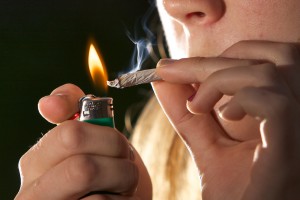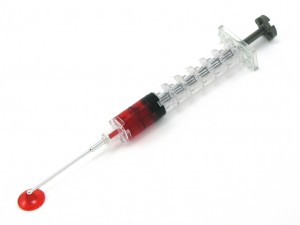Marijuana possession and use is completely legal in Massachusetts. It was passed in 2016, by ballot initiative, and, finally, in 2019 retail stores selling cannabis are opening all across the state.
But regardless of whether it is legal to buy, possess and smoke, it is still illegal to drive while impaired by marijuana, or any substance.
California, Illinois, Maine, Michigan, Nevada, and Vermont also passed marijuana legalization bills recently. With the previous legalization of marijuana in Colorado, Oregon, Alaska, and Washington state (as well as DC), and expansion of decriminalization, marijuana use is becoming more accepted and more open than ever. The legalization trend will continue nationwide.
Smoking marijuana openly and legally is likely to increase, which could lead to more incidents of arrests for driving under the influence of marijuana. Are lawyers ready for the new legal and scientific challenges that will be necessary to defend these cases?
States will try to push new arguments and tests to get convictions for DUI marijuana. But evidence that proves impairment by cannabis or THC is extremely hard to prove, and we win virtually ALL of our OUI Marijuana cases that we defend in court.
DUI and Measuring Intoxication Under The Law
Under the laws of every state, driving while intoxicated by drugs is already illegal. Impairment is determined by the same standardized field sobriety tests used in DUI alcohol cases. And in court, a police officer’s testimony as to the defendant’s appearance and driving prior to being stopped is used as evidence. Observational evidence that police typically note includes being unsteady on one’s feet, and glassy eyes.
But there is no equivalent of the breath test machine for marijuana, a test that police can use at the station to establish an objective measurement that would suggest intoxication. A breath test machine measures breath alcohol that is comparable to blood-alcohol levels, of which the nationwide standard established by the National Highway and Transportation Safety Administration (NHTSA) for alcohol intoxication is .08% Blood Alcohol Content (BAC).
Though the alcohol breathalyzer tests purport to measure the actual alcohol in the bloodstream, a breath test is not the same. It measures breath alcohol (BrAC) alveoli of the lungs and estimates a mathematical approximation to the actual level of alcohol in the bloodstream. The scientific basis for that formula has substantial flaws, as any experienced DUI defense attorney will tell you.
And the science for measuring marijuana impairment is substantially worse. Measuring active THC in the bloodstream has not been tested by any credible scientific organization to correlate strongly with impairment. And there are serious constitutional issues with the method of extracting this evidence in the first place, namely a highly invasive forced blood draw.
The 5 Nanogram of THC Standard
Washington State, as part of the initiative that legalized recreational marijuana use, also passed a per se marijuana intoxication standard of 5 nanograms of THC in the bloodstream, the active ingredient in marijuana, that would effectively establish evidence of guilt in a DUI-marijuana case.
However, this standard is highly controversial. The state of Colorado, which also legalized marijuana originally rejected any per se marijuana intoxication standard based on the questionable science but has since adopted it as well. They are also actively training officers to detect marijuana impairment behind the wheel, and ramping up an aggressive public service ad campaign, “Drive High, Get a DUI”.
Other states like Arizona, Ohio, Oklahoma, Nevada, and Pennsylvania are even worse, with essentially a zero-tolerance policy for any marijuana consumption while driving.
California has previously proposed a “per se” law for any detectable amount of THC in the bloodstream.
The science is at issue. NHTSA itself has essentially agreed that there is no way to tell “how much” is too much for most people. From their own scientific study:
“It is difficult to establish a relationship between a person’s THC blood or plasma concentration and performance impairing effects. Concentrations of parent drug and metabolite are very dependent on pattern of use as well as dose.”
And the levels will be different minute to minute, highest as you are smoking and they go down over time.
No one is suggesting that it is a great idea to toke up and go for a drive, but exactly how marijuana affects your motor coordination, multitasking ability, and decision making is still up for scientific debate. It is almost certainly not as dangerous as alcohol.
And prior use could come into effect because if you smoke a lot it stays in your system. And the forensic tools for establishing the difference between active THC suggesting intoxication and prior marijuana use are still in doubt.
Forced Blood Draws
In addition to the highly questionable science or measuring marijuana intoxication, there are serious questions about how law enforcement will extract evidence.
Currently, the only way to accurately determine levels of THC in the bloodstream is by actually drawing blood. There is no THC “breath test”, or any equivalent non-invasive way to measure THC levels in the body.
The US Supreme Court decided that forcing a defendant to provide a blood sample is allowed with a proper warrant, and exigency of alcohol (or THC) dissipation is not an excuse.
The Role of Drug Recognition Experts (DRE)
There are hundreds of police officers in Massachusetts now trained as “Drug Recognition experts” or DRE. They are trained in a process to supposedly test for drug intoxication that includes a variety of physiological evaluation standards. The test itself must be done at a police station, and the process takes about an hour to complete.
Some of these include tests that are not admissible in court in drunk driving cases, including the horizontal gaze nystagmus (HGN) or eye twitch test, and the finger to nose test.
The science of DRE exams is unproven, which is why some judges don’t allow it to be admitted. The Mass SJC has not addressed DREs in a case at the high court.
It is legal to refuse to submit to the DRE evaluation. Similar to refusing to do field sobriety tests, the fact of your refusal is not admissible in court.
People accused of crimes should generally not agree to provide any evidence to the police without talking to a lawyer first, so you should refuse the DRE procedure in any OUI drugs arrest.
DUI Drugs Legal Defense
My office already handles quite a few DUI Drugs cases of all types, and we expect that number to only increase. In Massachusetts, there is no per se standard for marijuana intoxication, so cases are determined based largely on 1) the Commonwealth establishing that any substance is listed as illegal to drive with taking, and 2) field sobriety tests that suggest impairment.
And it is illegal to drive while being impaired after taking marijuana in Massachusetts. But proving that you are impaired from weed is extremely difficult.
As I said, field sobriety tests that evaluate motor coordination often don’t show much in marijuana cases. Alcohol substantially impacts coordination and balance, THC much less so.
Please call me if you’ve been arrested on any OUI Drugs / Marijuana case. These cases are often beatable since evidence of drug intoxication is hard to establish in court.




In New Jersey it has been around a long time. The problem up until now has been how do you test for the presence of Marijuana and what is the standard for being under the influence. There is no number such as .08 for driving under the influence of alcohol.
Yes, so many interesting legal issues in this evolving legal area. Proving impairment is one. The 5 ng of active THC standard that some states are trying is scientifically nonsensical, and the means to gather that evidence, blood draws, has obvious Constitutional issues.
Thanks for commenting!